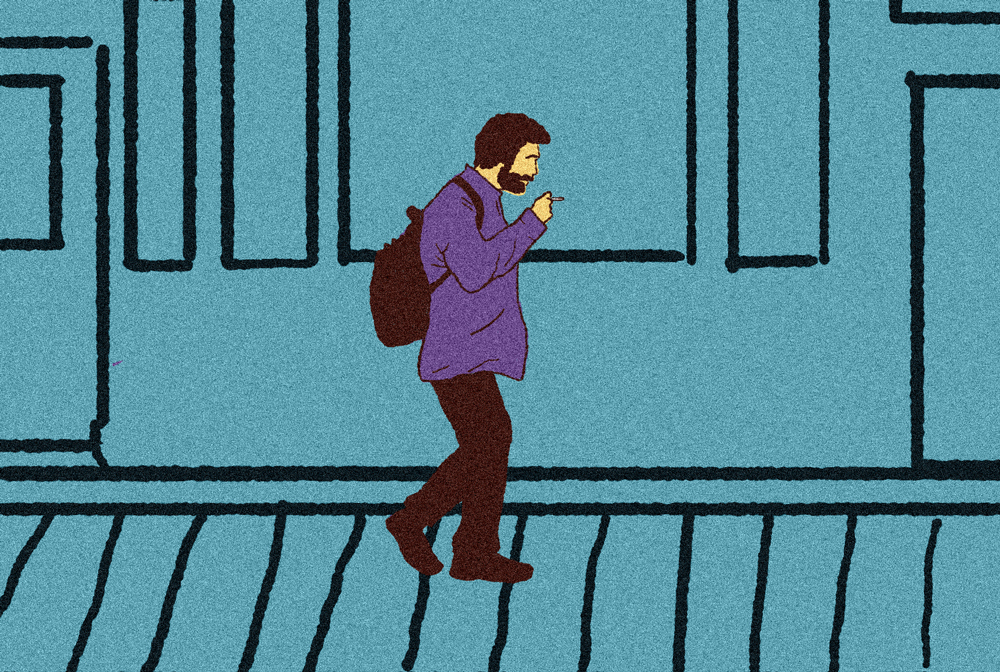City council approves hiring first responders for houseless individuals
The Portland City Council approved a new initiative to hire a team of first responders trained to work with houseless individuals in an effort to change the way law enforcement treats houselessness in Portland.
The Portland Street Response, a program that members of Portland State’s Homelessness Research and Action Collaborative and Portland City Commissioner Jo Ann Hardesty’s office worked together to create, will introduce a new team of first responders skilled in interacting with houseless individuals and those experiencing mental health crisis.
A pilot program is set to begin in 2020 after Portland City Council voted unanimously to approve it on Nov. 21. The program is intended to limit interaction between police and houseless individuals and ultimately to change the way houselessness is treated by law enforcement in Portland.
“This program is desperately needed and has been for decades,” said Portland City Commissioner Chloe Eudaly before voting yes on the initiative. “The federal government is chronically underfunding affordable housing, mental health care and addiction services, and the state of Oregon in particular is failing individuals experiencing mental health and addiction issues.”
The Portland Street Response
The program will hire a new group of first responders for nonviolent 911 calls involving houselessness and mental health. The new responders will be trained as social workers and will focus on getting houseless individuals help and resources instead of tickets and arrests.
Multiple individuals and organizations began to take action against the criminalization of houselessness by advocating for something like the Portland Street Response after The Oregonian reported that more than half of all arrests made in Portland are of houseless individuals.
“The Portland Street Response is a ‘heart’ response to the harm that’s happening on our streets,” Hardesty said. “It’s a response that says we can do better.”
The Portland Street Response will dispatch a team of two responders to nonviolent 911 calls related to houselessness and mental health in order to provide help and resources and to limit the amount of houseless individuals arrested daily.
The pilot program will be based in a 5-square-mile area of the Southeast neighborhood of Lents, where calls involving houselessness have risen by roughly 20% over the past few years, according to The Oregonian. The pilot is intended to help perfect the program and to identify what elements of it are the most successful and which ones need work.
Depending on how the pilot plays out, City Council will then decide whether or not to expand the program city-wide in 2020. In the pilot, the new responders will be on the clock Monday through Friday from 10 a.m.–6 p.m., but those hours could soon be expanded, as well as the amount of new responders if the initial pilot proves successful.
PSU’s role
The program was crafted by commissioner Hardesty’s office, as well as members of PSU’s Homeless Research and Action Collaborative, a research group focused on houselessness in Portland.
Greg Townley, professor of community psychology at PSU and director of the HRAC, applauded City Council for using informed research and data—partly collected by the HRAC—as a part of crafting the Portland Street Response.
“Thank you for your commitment to making sure this platform is informed by research and evaluation,” Townley said. “This is fundamentally important to the success of Portland Street Response. We need to understand how it’s operating and what changes and adaptations are necessary to make sure it’s working for unhoused individuals.”
Lisa Hawash, associate professor of practice for the PSU School of Social Work, also praised the program.
“Responding to mental health or addiction crisis requires a specific skill set that law enforcement should not need to be trained to do,” Hawash said of the Portland Street Response. “Social workers spend years learning these skills and are better suited to respond than law enforcement.”
City Council members were vocal about their appreciation for the support the HRAC and PSU have provided in establishing the Portland Street Response.
“I’m so grateful we will have PSU with us every step of the way,” Hardesty said. “I am thrilled that we’re going to be measuring every step of the way. This is a community effort, and I hope we have many more opportunities to not talk about individual bureaus but talk about our vision as a city and our vision about what’s possible for the people of Portland.”
The Portland Street Response was approved shortly after Interim President Stephen Percy released a new Campus Public Safety Plan meant to increase safety on the PSU campus while also addressing concerns about police interactions with houseless individuals and people of color.
Percy’s plan has been criticized by the HRAC for not adequately addressing race in its proposal. However, Percy emphasized that the plan will be hiring a new team of “student safety ambassadors,” who are intended to report on the interaction Campus Public Safety Officers have with the student body, specifically with underrepresented groups.
Percy’s office did not immediately respond to comment about whether or not the holistic safety plan was at all inspired by the Portland Street Response.
Widespread support
Mayor Ted Wheeler, Police Chief Danielle Outlaw, Fire Chief Sara Boone and every City Council member applauded the program at the City Council meeting, which was nearly at capacity with individuals and organizations who came to show their support for the program.
“[The Portland Street Response] allows us to decrease the likelihood of the unintended consequence that we’re talking about today in criminalizing those who have not committed a crime,” Outlaw said.
“As mayor, I’m a strong advocate for this program and I have been for some time,” Wheeler said. “It’s a compassionate—and I believe a better way—to respond to incidents involving the city’s homelessness and those experiencing mental health crises in our community.”
While the program hasn’t drawn much criticism, some have taken issue with the fact that it might be saying that current first responders aren’t doing a good enough job.
However, most of those present at the meeting were quick to point out the program is intended to fundamentally change the way that houselessness is handled by law enforcement and that the way things are set up now isn’t working.
“This is not the be all and end all,” Commissioner Amanda Fritz said. “This is a pilot project. It hopefully will be successful, although there will be challenges.”
“We have not changed our first responder system since the late 1800s,” Hardesty explained. “And a big change we made then was going from a volunteer force to a paid force. [The Portland Street Response] is revolutionary, and it could not happen without each and every one of the people that participated in this effort.”
Other organizations involved
The Portland non-profit newspaper Street Roots played a big role in getting the Portland Street Response started, according to Street Roots Executive Editor Kaia Sand. The idea itself was generated by an editorial published in Street Roots in March of 2019, where Sand called for a change to the way houselessness is handled by Portland Police, especially following reporting from The Oregonian.
“We do know that too many people die on our streets, and the more we can provide people hope and we can reduce the amount of trauma they experience, the more we can contribute to a healthier place for unhoused people,” Sand said at the City Council meeting.
Much of the Portland Street Response was inspired by a similar program in Eugene called CAHOOTS, which sends out two teams of two, typically a social worker and a paramedic, at all hours of the day to help get houseless individuals help and resources. They are unaffiliated with other public safety agencies, except for dispatches from 911 and the non-emergency line.
CAHOOTS has been in operation for over 30 years and responds to roughly 20% of 911 and non-emergency calls. Only 10% of calls CAHOOTS responds to require additional law enforcement assistance, according to The Oregonian.
“Our community really embraces CAHOOTS, because we’re able to take care of situations that aren’t appropriate for police or EMS,” said Kate Gillespie, a clinical coordinator for CAHOOTS, at the City Council meeting.
“A CAHOOTS type program could truly benefit Portland and be really successful because there’s so many established programs and partner agencies to even further serve the community.”
In a video shown at the City Council meeting, the issue of criminalizing houselessness was examined. “People are just getting arrested again and again and again out in public spaces,” Sand said.
“Sometimes they are doing things where, if they were in a house, it wouldn’t be a problem,” Sand said. “So they end up getting entangled [and] are beaten down for it. It’s almost like as a society, we’re pushing people further and further into poverty and homelessness.”
“Being homeless is not a crime,” Eudaly said. “Having a mental illness is not a crime. Having an addiction is not a crime. I’m happy that we are going to be decriminalizing those non-crimes and giving people a better chance to recover and succeed.”






